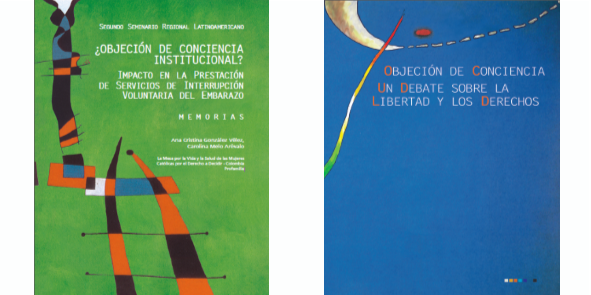
Objectión de Consciencia Institutional? Impacto en la Prestación de Servicios de Interrupción Voluntaria de Embarazo: Memorias
Seminario Internacional de Objeción de Conciencia. Un debate sobre la Libertad y los Derechos.
The second regional seminar on “Institutional conscientious objection: its impact on the provision of services for termination of pregnancy” took place in Bogotá on 4-5 August 2016. The seminar was the result of a collective effort by a group of national and regional organizations in Latin America who for several years have been promoting an interdisciplinary dialogue to identify the extent of this practice and its effects in the exercise of women’s reproductive rights and the provision of legal abortion services. The meeting concluded that although there are multiple interpretations of the applicability of conscientious objection as a fundamental right in the provision of health services, there is also a widespread concern in relation to the abuses by health professionals and institutions providing services to prevent timely access to legal abortion services in countries that have decriminalized abortion in whole or in part, among them the so-called “institutional conscientious objection”.
The first regional seminar on “Conscientious objection: a debate about liberty and rights” took place in Montevideo, Uruguay, in 2013. It is a starting point for the discussions we have started in Latin America on the issue of conscientious objection and its relationship with sexual rights and reproductive rights. Here we treat conscientious objection also from the point of view of those who practice conscious “commitment”. The staff and health professionals who comply with the laws on abortion – don’t they have consciences? Do they not do “conscience”? They know that clandestine abortion is unsafe; they are aware of the danger and risks which so many thousands of women have had to go through. Their ethics have been built on that knowledge and are in favour not only of safe births but also of life and the life projects of women. It is not just that they comply with the law, but that they recognize the reproductive autonomy of women and their right to decide.
FULL REPORTS (en español):
Segundo Seminario Regional Latinoamericano: http://www.despenalizaciondelaborto.org.co/wp-content/uploads/2017/04/Memorias_Seminario_Objecion_de_Conciencia.pdf
Primer Seminario Regional Latinoamericano: http://www.despenalizaciondelaborto.org.co/wp-content/uploads/2016/11/libro-seminario-objecin-de-conciencia-final-1.pdf



